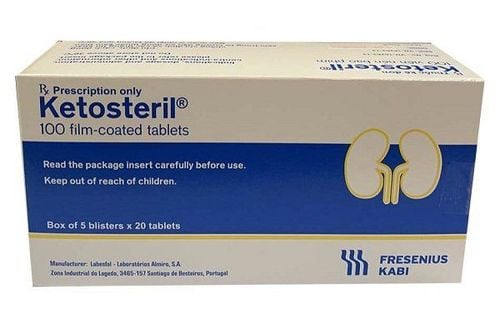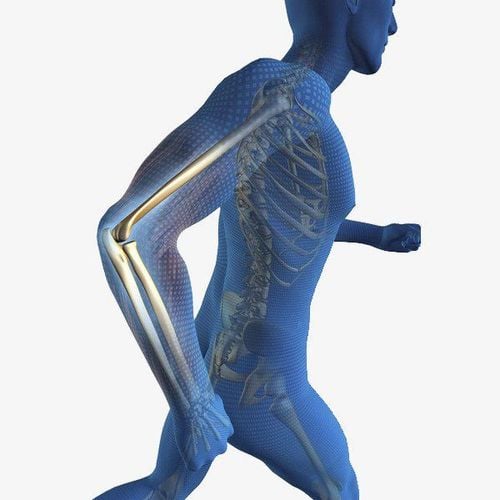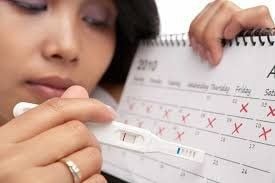This is an automatically translated article.
Perimenopause and menopause are important stages in a woman's life. This step marks the end of a woman's fertility. Perimenopause is the first stage in this process and can begin eight to 10 years before menopause. Early menopause occurs when a woman's periods stop before age 45. It can happen spontaneously, or as a side effect of certain treatments. Menopause is the time when a woman has stopped menstruating for at least 12 months. The following article will help you better understand these stages.
Menopause is the period that officially marks the end of the reproductive process for women. There are many stages of menopause that make a woman's mind and physiology change. Therefore, they need to recognize and understand their body through each stage. Menopause is marked by the cessation of menstrual cycles.
Meanwhile, perimenopause is the transition period to menopause and occurs before menopause. Despite their similarities, perimenopause and menopause also present many differences in their symptoms and treatment options.
1. Perimenopause, early menopause and menopause
For many people, perimenopause can occur without any of the symptoms associated with menopause or menopause. Women in this stage still have periods of time, whether long or short, when they are able to perform reproductive functions. In addition, some hormonal changes can occur in the body but in general do not bring about any noticeable change
Contrary to perimenopause, women during menopause begin to early signs of some menopause symptoms, for example, menstrual cycle changes, hot flashes, sleep disturbances, or frequent mood swings....

Bốc hỏa là triệu chứng thường gặp ở phụ nữ mãn kinh
Perimenopause and menopause are sometimes used interchangeably, but in essence, these two phases have different meanings. For some women, menopause comes on early as a result of the treatments needed to save their lives, such as surgery, chemotherapy, or radiation. For others, genetics, autoimmune disorders, or even unknown reasons cause early menopause. From disrupted sleep and hot flashes to dry eyes and weight gain, menopause symptoms can range from uncomfortable to severe. But if you're experiencing it in your 20s, 30s, and early 40s, this could signal early menopause.
2. Timeline of the two stages of perimenopause, early menopause and menopause
Perimenopause is the period that precedes. Normally, women will go through about 8 to 10 years of perimenopause before officially entering menopause. Perimenopause occurs between the ages of 30 and 40 of a woman. Perimenopause is marked by a drop in the body's levels of the hormone estrogen, which is the main female hormone produced by the ovaries. Estrogen levels can also increase or decrease abnormally during this period, causing irregular menstrual cycles and accompanying many other symptoms.
At the end of perimenopause, the body or more specifically the ovaries produce less and less estrogen hormone, causing estrogen levels to drop sharply. Even so, a woman in the perimenopausal period is still able to get pregnant. Perimenopause can last for several months or even years.
Menopause officially occurs when the ovaries produce so little of the hormone estrogen that an egg cannot be released. This also means that a woman in this period does not have a period and cannot get pregnant.
Menopause may come earlier than usual in a number of conditions, including:
Other women in the family with a history of early menopause Heavy smoking Has had surgery removal of part or all of the uterus Has undergone cancer treatments

Hút thuốc lá tăng nguy cơ mãn kinh sớm
In general, the timeline of perimenopause and menopause depends on many factors. Therefore, showing signs of menopause too early or too late is not usually associated with serious health problems.
Premature menopause, between the ages of 40 and 45, affects about 5% of women. Early menopause, before age 40, affects about 1% of women. If your periods change dramatically (become longer or shorter, or change dramatically from your usual menopause schedule) or stop altogether in three cycles before age 45, make an appointment with doctor for evaluation. If you're going through early menopause then you're at risk for a variety of long-term health consequences, including heart disease, dementia, Parkinson's, and osteoporosis if you don't take hormone therapy, known as therapy appropriate hormone replacement in these cases.
3. Symptoms of perimenopause, early menopause and menopause
When entering menopause, most women think about the symptoms of this period more than anything else. The symptoms of menopause are often uncomfortable, especially hot flashes.
Perimenopause often occurs with mild symptoms and few symptoms. Symptoms of perimenopause can include:
Irregular menstrual cycles Periods for each cycle are unusually long (Menstrual irregularities) Soft breasts Weight gain Fragile hair Increased heart rate Mild Occasional headaches Decreased sex drive Often loss of concentration Memory impairment Muscle aches Urinary tract infections Difficulty conceiving
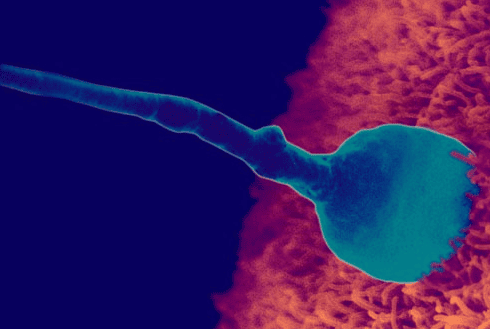
Bước vào thời kì mãn kinh việc thụ thai trở nên vô cùng khó khăn
Meanwhile, estrogen hormone levels drop to a minimum, which marks the onset of menopause. When menopause occurs, a woman may experience some of the following symptoms:
Frequent hot flashes Excessive night sweats Frequently feeling depressed, anxious or irritable Levels Insomnia Fatigue Fatigue Dry skin, mucous membranes, especially vaginal mucosa Frequent urination, nocturia, urinary incontinence. Perimenopause and menopause can also increase blood cholesterol levels. This is why women going through menopause have a higher risk of heart-related diseases. For early detection and timely adjustment of cholesterol levels, it is necessary to regularly check cholesterol levels, at least once a year.
The main symptom of early menopause is irregular periods or stopping altogether without any other reason (such as pregnancy).
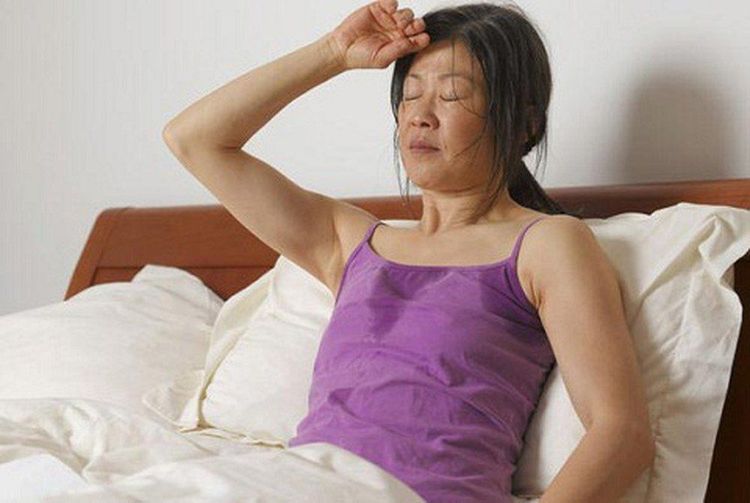
Nhiều người khi mãn kinh sẽ gặp tình trạng đổ mồ hôi đêm
Some women may also have other typical menopausal symptoms, including:
Hot flashes Night sweats Vaginal dryness and discomfort during sex Difficulty sleeping Sad or anxious mood Decreased libido sexual desire (libido) Impaired memory and concentration Women going through menopause early also have an increased risk of osteoporosis and cardiovascular disease due to decreased levels of the hormone estrogen.
4. Symptomatic treatment of perimenopause, early menopause and menopause
The symptoms of menopause often bring a lot of trouble to a woman's life. These symptoms tend to get worse from perimenopause to menopause. There are many methods used to treat the symptoms of perimenopause and menopause. Hormone therapy (estrogen) can be used to treat symptoms of both perimenopause and menopause. These drugs work by normalizing estrogen levels in the body, thereby reducing unpleasant symptoms caused by hormonal disorders. In many cases, hormone therapy can also reduce the risk of osteoporosis in postmenopausal women.
Hormone therapy can be used in many forms, including:
Oral Pills Cream Gel Skin Patch Depending on the condition of the menopause symptoms, the doctor will prescribe a suitable treatment for each person. In addition to hormone therapy, other menopause medications may be more targeted. For example, vaginal cream can relieve vaginal dryness, reduce pain during sex, thereby arousing sexual desire. Antidepressants can help a woman change her mood in a positive way. Or for migraines, an anti-seizure drug called gabapentin may be a good choice.

Duy trì thói quen tập thể dục giúp cải thiện các triệu chứng của thời kì mãn kinh
Changing some of your daily habits can also be one of the effective ways to relieve menopausal symptoms. Regular exercise can both improve your mood, maintain weight, or even reduce hot flashes. Planning activities for each day can improve memory disorders or limit work before going to bed to avoid leading to insomnia. Here are a few other measures you can take to try to relieve menopausal symptoms:
Divide your diet into small meals Limit your use of stimulants like alcohol, beer and tobacco Limit Limit caffeine use, especially in the evening. There are certain diets specifically designed for women in menopause. The main treatment for early menopause is the combined oral contraceptive pill or hormone replacement therapy (HRT) to make up for your missing hormone levels. If you already have certain types of cancer, such as certain types of breast cancer, you may not be able to have hormone treatment. Health professionals will talk to you about other treatment options and lifestyle changes you can make to help protect your health.
Both perimenopause and menopause are part of menopause and this marks the end of a woman's fertile period. This stage brings with it both mental and physiological changes, but not all of these changes are negative. Currently, there are many methods being applied to treat and limit the symptoms of perimenopause and menopause to help women feel more comfortable in life.
Currently, Vinmec International General Hospital is implementing a package of pre-menopausal health care examination and consultation. The package is for the following subjects:
Women aged 45-55, possibly younger (when suffering from premature ovarian failure), menstrual irregularities, sexual disorders, suspected disorders endocrinology, or have a need to use hormone replacement therapy, or want to prepare themselves for perimenopause and menopause. The client has risk factors such as smoking, being under prolonged stress, undergoing cancer treatment, having surgery to remove 1 or 2 ovaries. Customers with symptoms such as menstrual irregularities, sexual disorders, changes in psychology, sleep When using the package, customers will be examined and consulted with a specialist in Obstetrics and Gynecology. department. Perform tests to evaluate hormone status. From that result, doctors will advise and suggest treatment methods to minimize symptoms during this period.
Please dial HOTLINE for more information or register for an appointment HERE. Download MyVinmec app to make appointments faster and to manage your bookings easily.
References: healthline.com, my.clevelandclinic.org, newsnetwork.mayoclinic.org, nhs.uk/conditions/early-menopause




